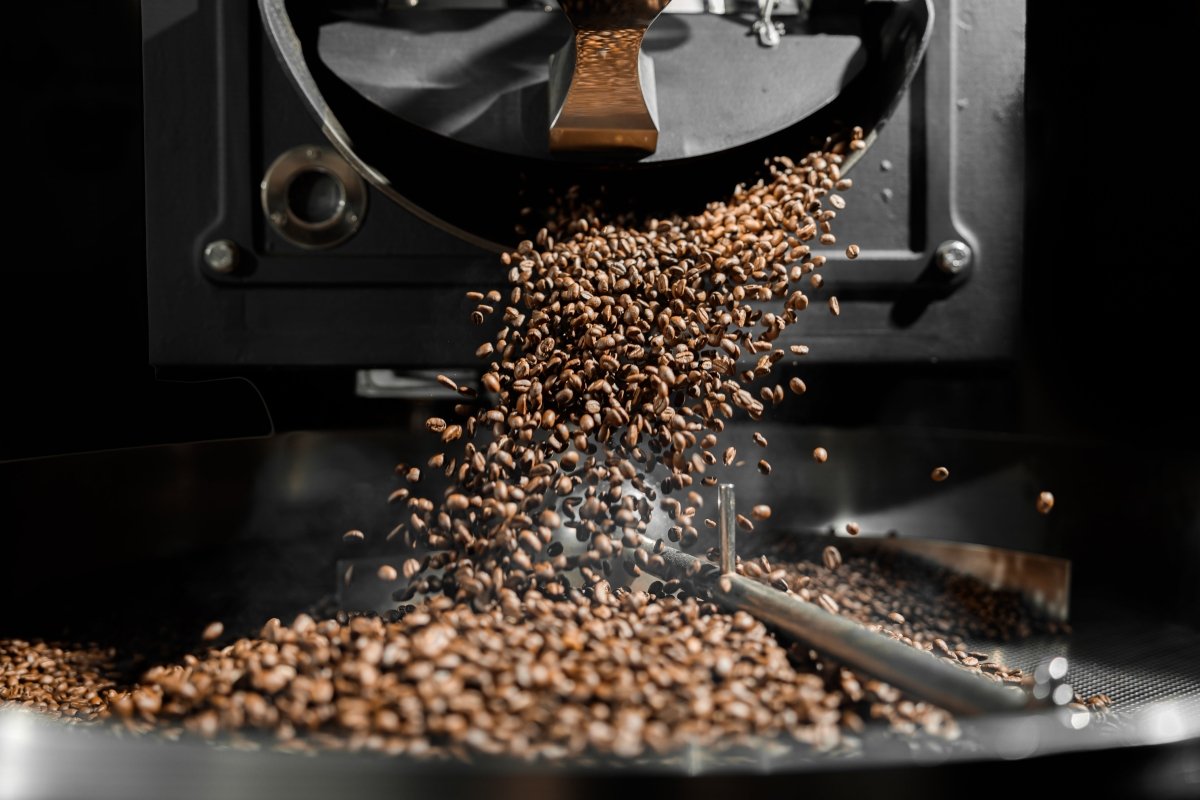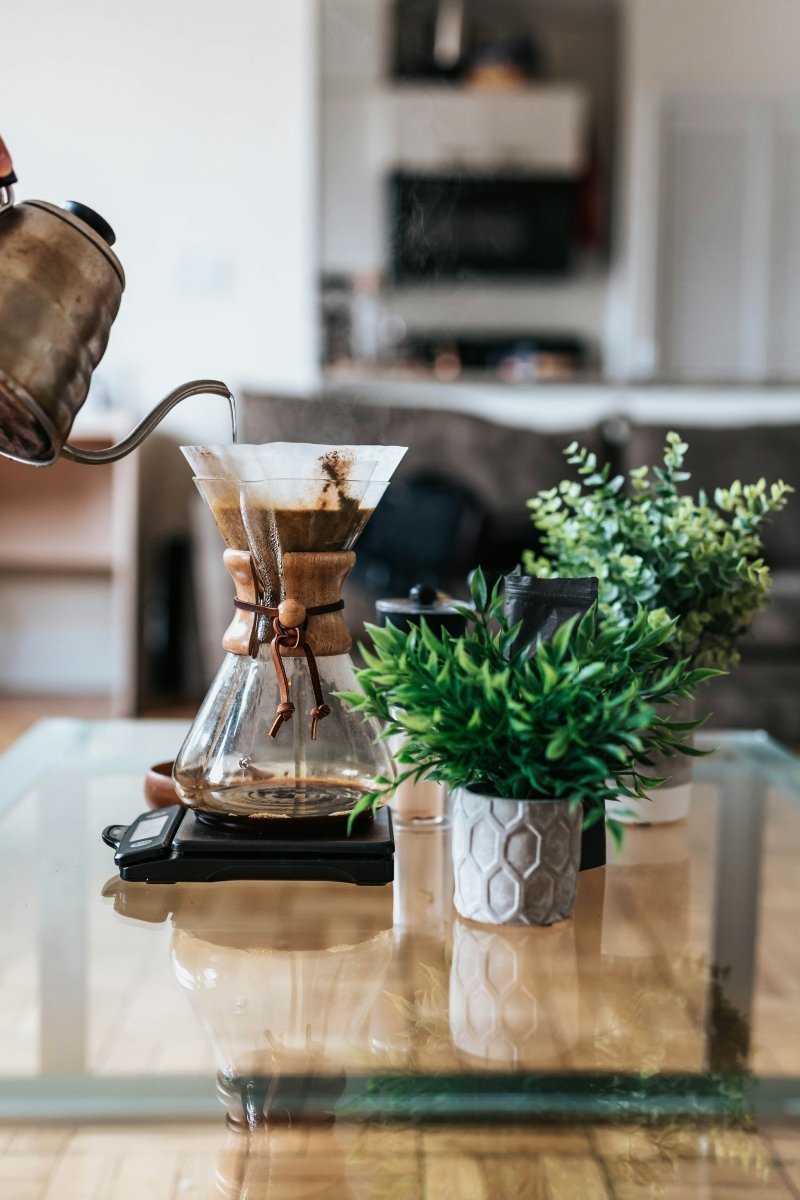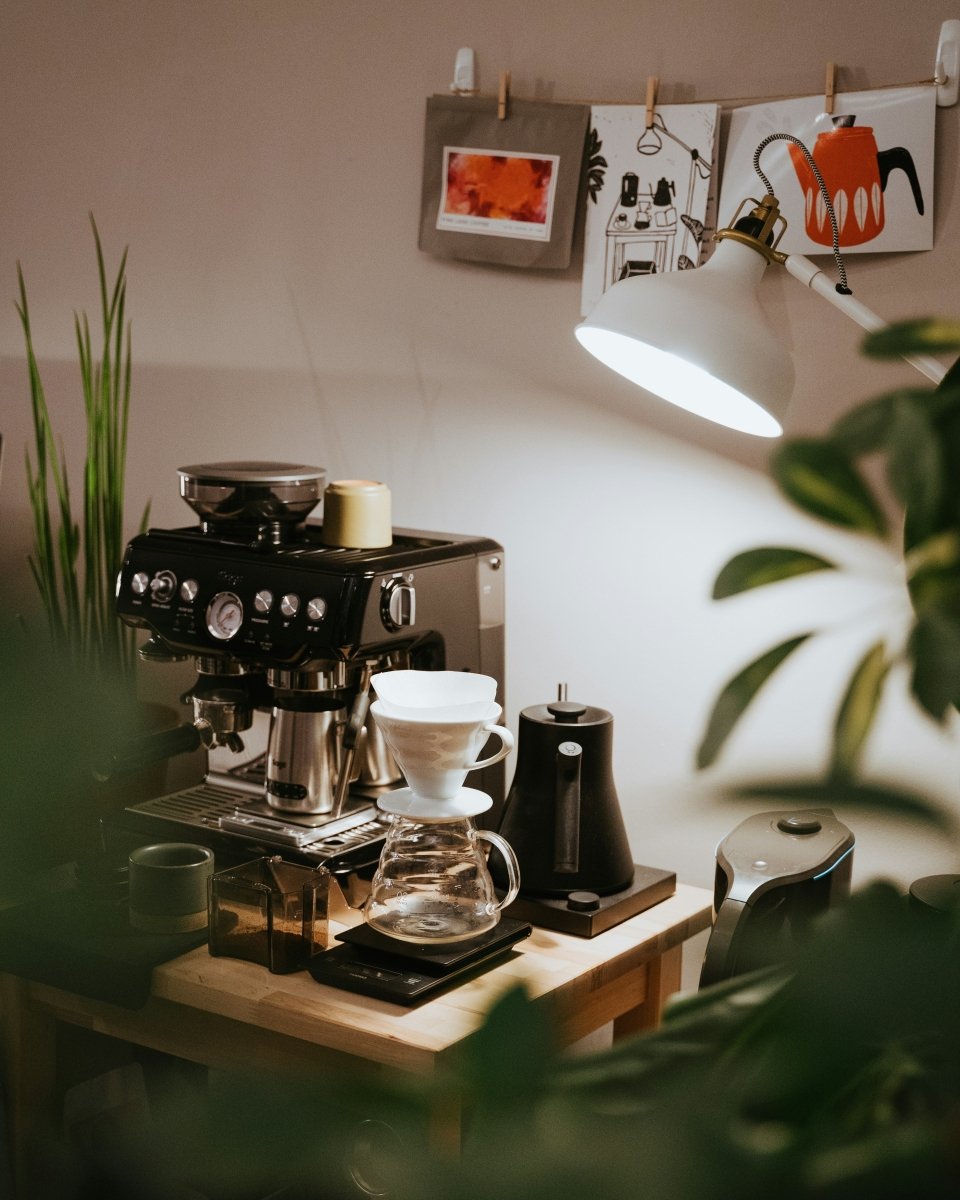
Do you ever wonder why pre-packaged coffee often tastes flat compared to beans roasted just days ago? Discovering the difference between freshly roasted coffee and its mass-market counterpart reveals how roasting methods, packaging, and chemistry shape every sip. This guide maps out the definitions and processes behind fresh and pre-packaged beans, explores flavor and aroma contrasts with a detailed comparison table, delves into the science of freshness loss, offers storage best practices, and highlights why His Word Coffee’s specialty-grade, roasted-to-order beans deliver an uplifting, faith-inspired experience.
What Defines Freshly Roasted Coffee and Its Impact on Flavor and Freshness?
Freshly roasted coffee describes beans that complete their roasting cycle within days of delivery, preserving volatile compounds and delivering peak aromatic intensity. This immediate turnaround contrasts the weeks or months-old profile of pre-packaged coffee, ensuring a vivid taste that captures origin characteristics and complexity, laying the groundwork for understanding how roasting transforms green beans into flavor-rich brews.
What Is Freshly Roasted Coffee and How Is It Different?
Freshly roasted coffee refers to specialty-grade beans roasted to order, often within 1–3 business days, which retains higher levels of natural oils, antioxidants, and aroma precursors. By limiting the time between roast and brewing, volatile compounds such as aldehydes and esters remain intact, resulting in nuanced flavor layers—from bright acidity to chocolatey sweetness—that pre-packaged coffee cannot match unless freshly sealed after roast.
How Does the Coffee Roasting Process Influence Freshness?

The coffee roasting process applies controlled heat to green beans, triggering Maillard reactions and caramelization that develop flavor and aroma. Rapid temperature ramp-up creates balanced acidity and sweetness, while roast level determines body and bitterness. Properly monitored roasts prevent overdevelopment of phenolic compounds, preserving freshness that forms the sensory backbone of a vibrant cup and connects directly to freshness perception.
Why Is Coffee Degassing Important for Freshness?
Degassing is the natural release of carbon dioxide from roasted beans, which peaks in the first 48–72 hours. Controlled degassing prevents excess CO₂ from creating sour pockets during extraction while allowing essential aromatic compounds to stabilize. This resting period ensures an even brew and maximizes flavor clarity, demonstrating that peak freshness emerges only after beans have released roast-byproducts without losing their volatile richness.
How Does Fluid Bed Roasting Enhance Coffee Flavor?
His Word Coffee’s fluid bed roasting method suspends beans on a cushion of hot air, promoting uniform heat exposure and gentle bean movement. This technique yields cleaner, brighter cup profiles by minimizing scorching and preserving delicate aroma compounds. The result is a specialty coffee experience marked by clarity and balance, reflecting the integrity of origin beans and reinforcing the company’s commitment to faith-inspired care and quality.
How Does Pre-Packaged Coffee Lose Freshness and Flavor Over Time?
Pre-packaged coffee often spends weeks or months in sealed bags before reaching your pantry, during which environmental factors degrade its sensory attributes. Understanding these causes illuminates why pre-ground and bulk-pack products rarely match the dynamic flavors of freshly roasted beans and prepares us to explore specific chemical reactions that erode quality.
What Factors Cause Freshness Loss in Pre-Packaged Coffee?
The main culprits in pre-packaged coffee degradation are oxidation, moisture, light exposure, and heat fluctuations.
- Oxidation exposes oils and aromatic compounds to oxygen, leading to rancidity and off-flavors.
- Moisture absorption facilitates mold growth and flavor muting.
- Light penetration breaks down chlorogenic acids and volatile oils.
- Elevated temperatures accelerate chemical reactions that strip complexity.
How Does Oxidation Affect Coffee Flavor and Aroma?
Oxidation is a chemical reaction in which oxygen molecules attack unsaturated lipids and aromatic compounds, creating hydroperoxides and aldehydes that generate stale, cardboard-like notes. As oils break down, key flavor precursors disappear, reducing both acidity and sweetness. Preventing oxidation through proper sealing and inert-gas flushing is essential to preserving the sensory qualities that define specialty coffee.
Oxidation and Flavor Degradation in Coffee
Oxidation is a significant factor in the degradation of coffee flavor, as oxygen molecules attack unsaturated lipids and aromatic compounds, leading to stale flavors. Preventing oxidation through proper sealing and inert-gas flushing is essential to preserving the sensory qualities that define specialty coffee.
Clarke, R.J., & Vitzthum, O.G., Coffee: Recent Developments (2001)
This citation reinforces the article's explanation of how oxidation affects coffee flavor and the importance of proper storage to prevent it.
Why Does Pre-Ground Coffee Go Stale Faster Than Whole Beans?
Pre-ground coffee exposes up to 10 times more surface area to air compared to intact beans, dramatically accelerating oxidation and volatile compound loss. Each particle becomes a site for moisture absorption and aroma escape, resulting in a rapid decline in freshness. This is why grinding beans just before brewing—ideally using whole coffee beans—remains a cornerstone of optimal flavor retention.
How Does Packaging Influence Coffee Shelf Life?
Packaging methods such as vacuum sealing, nitrogen flushing, and one-way degassing valves dramatically extend shelf life by limiting oxygen exposure and allowing CO₂ to escape without admitting air. Quality packaging maintains bean integrity, while foil-lined bags with degassing valves preserve peak freshness. Conversely, standard plastic pouches allow slow oxygen ingress that diminishes flavor over time.
What Are the Flavor and Aroma Differences Between Freshly Roasted and Pre-Packaged Coffee?
Freshly roasted coffee consistently delivers vibrant, multi-layered flavor notes and an intense aroma profile, while pre-packaged alternatives often present muted tastes and diminished scent. The following table uses an Entity-Attribute-Value structure to illustrate these distinctions:
| Coffee Type | Attribute | Value |
|---|---|---|
| Freshly Roasted Coffee | Flavor Profile | Bright acidity, layered sweetness |
| Freshly Roasted Coffee | Aroma Intensity | Bold, fragrant |
| Freshly Roasted Coffee | Freshness Duration | 4–6 weeks at peak quality |
| Pre-Packaged Coffee | Flavor Profile | Flat, one-dimensional |
| Pre-Packaged Coffee | Aroma Intensity | Faded, weak |
| Pre-Packaged Coffee | Freshness Duration | 2–4 weeks before noticeable decline |
How Do Flavor Profiles Vary Between Fresh and Pre-Packaged Coffee?
Freshly roasted beans exhibit dynamic flavor notes—fruity acidity, caramel sweetness, herbal undertones—because volatile compounds remain active. In contrast, pre-packaged coffee often tastes predominantly bitter or flat, lacking the nuance that originates from well-preserved aromatics.
What Are the Aroma Intensity Differences?
Aroma intensity depends on volatile oil concentration. Fresh roasts release a robust bouquet of floral, nutty, or spicy scents, while pre-packaged beans emit only lingering, shallow odors, indicating significant compound loss during storage.
How Does Freshness Affect the Overall Coffee Experience?
High freshness enhances mouthfeel, balances acidity and sweetness, and supports antioxidant benefits, contributing to both sensory satisfaction and potential health perks. Stale coffee impairs extraction consistency and yields a less engaging taste, underscoring why freshness matters beyond flavor alone.
What Does a Comparison Table Reveal About Fresh vs. Pre-Packaged Coffee?
A direct comparison table exposes the gap in flavor depth, aroma clarity, and shelf-life longevity. It demonstrates that freshly roasted beans deliver a sustained sensory advantage—essential for connoisseurs seeking quality and a reflective coffee experience.
What Is the Science Behind Coffee Freshness and Flavor Degradation?
Coffee freshness hinges on the stability of volatile compounds and the prevention of oxidative reactions. Exploring the chemistry behind these processes clarifies why storage and handling practices are crucial to preserving cup quality.
How Do Volatile Compounds Influence Coffee Flavor?
Volatile compounds—esters, aldehydes, ketones—generate specific taste and aroma notes by interacting with olfactory receptors. Their concentration peaks shortly after roasting, then declines through diffusion and chemical transformation. Maintaining a high level of these molecules is key to a complex flavor profile.
The Chemistry of Coffee Freshness
The freshness of coffee is closely tied to the presence of volatile compounds, such as esters and aldehydes, which contribute to its flavor and aroma. These compounds are most concentrated shortly after roasting and diminish over time due to diffusion and chemical reactions. Maintaining a high level of these molecules is key to a complex flavor profile.
Illy, A., The Science of Coffee (2002)
This research supports the article's discussion of how volatile compounds influence coffee flavor and the importance of preserving them for optimal taste.
What Role Does Oxidation Play in Flavor Loss?
Oxidation degrades polyphenols and VOCs (volatile organic compounds) into undesirable byproducts, such as rancid fatty acids. This reaction reduces perceived freshness, flattens acidity, and introduces off-flavors, making oxidative control essential for long-term flavor preservation.
How Does Degassing Protect Coffee Freshness?
Degassing allows CO₂ to escape harmlessly, preventing gas buildup that can rupture packaging or cause uneven extraction. By timing degassing correctly, roasters preserve aroma compounds and stabilize beans for optimal brewing performance.
How Does Coffee Chemistry Differ in Freshly Roasted vs. Pre-Packaged Beans?
Freshly roasted beans retain higher antioxidant levels, such as chlorogenic acids, and preserve essential oils that contribute to mouthfeel and health benefits. Over time, these compounds oxidize or evaporate in pre-packaged coffee, resulting in lower antioxidant activity and a diminished sensory profile.
How Can You Maximize Coffee Freshness at Home?
Applying proper storage techniques ensures that even freshly roasted beans maintain their peak quality from roast date to brew. These practices safeguard aroma, flavor, and potential health benefits.
What Are the Best Coffee Storage Methods to Preserve Freshness?

Optimal storage involves airtight, opaque containers kept in cool, dark locations away from heat sources.
- Use ceramic or stainless-steel canisters with silicone seals.
- Avoid clear jars that admit light.
- Keep canisters at room temperature—freezing can introduce moisture.
Why Choose Whole Coffee Beans Over Ground Coffee for Freshness?
Whole beans encapsulate volatile oils and aroma within an intact surface, shielding them from rapid oxidation. Grinding just before brewing exposes fresh compounds at the moment of extraction, ensuring maximum flavor transfer and a fuller aromatic expression.
How Should You Understand and Use Roast Dates?
Roast dates mark the day beans achieve peak volatile content. Freshly roasted coffee typically hits its flavor apex 4–7 days post-roast and remains excellent for up to six weeks when stored properly. Tracking roast dates empowers you to consume beans during their optimal window.
What Are the Top Tips for Keeping Coffee Fresh Longer?
The following tips highlight essential practices to preserve the aromatic profile and flavor stability of coffee:
- Store beans in an airtight container immediately after opening.
- Keep the container in a cool, dark place away from heat sources.
- Grind beans just before brewing to limit surface exposure.
- Use beans within two weeks of roast date to maximize freshness.
- Avoid refrigerating or freezing beans, as temperature swings introduce moisture.
What Makes His Word Coffee’s Freshly Roasted Beans a Superior Choice?
His Word Coffee combines specialty-grade sourcing, a faith-rooted mission, and roasted-to-order service to deliver an exceptional coffee experience that uplifts both palate and spirit.
How Does Roasted-to-Order Service Ensure Peak Freshness?
By roasting beans in small batches only after an order is placed, His Word Coffee minimizes time between roast and delivery. This approach locks in volatile compounds and delivers coffee at its sensory peak, fostering a vibrant cup that reflects the care invested in every batch.
How Do Faith, Integrity, and Service Reflect in Coffee Quality?
A commitment to faith and integrity guides every decision—from selecting ethical farms to employing fluid bed roasting. This values-driven approach ensures transparency, consistent quality, and a community focused on uplifting experiences, making each cup an expression of service and stewardship.
What Ethical Sourcing Practices Support Specialty Grade Coffee?
Partnering with Fair Trade and Rainforest Alliance-certified growers, His Word Coffee sources beans that meet rigorous environmental and social standards. These practices guarantee traceability, support farmer livelihoods, and uphold the highest quality benchmarks for sustainable specialty coffee.
How Does His Word Coffee Inspire Reflection Through Fresh Coffee?
Freshly roasted coffee provides a moment of pause for reflection and connection. His Word Coffee’s faith-inspired ethos transforms each cup into a mindful ritual—inviting customers to savor flavor, contemplate purpose, and find daily renewal in both taste and spirit.
What Are Common Questions About Freshly Roasted vs. Pre-Packaged Coffee?
Enthusiasts often ask how freshness impacts flavor, how long beans remain optimal, and which handling steps matter most. The following answers clarify these concerns for a more informed coffee ritual.
Is Freshly Roasted Coffee Really Better Than Pre-Packaged?
Yes, freshly roasted coffee delivers richer flavor complexity, higher antioxidant activity, and a fuller aroma profile because volatile compounds are at their peak immediately after roasting. By contrast, pre-packaged beans lose these elements over time, resulting in a less engaging cup.
How Long Does Coffee Stay Fresh After Roasting?
Whole roasted beans are typically at their flavor apex between 4 and 21 days post-roast and remain enjoyable for up to six weeks when stored under proper conditions. After this period, oxidative changes gradually diminish sensory quality.
What Is Coffee Degassing and Why Does It Matter?
Coffee degassing is the process by which roasted beans release excess carbon dioxide, usually within the first 48–72 hours. Allowing degassing prevents sour extraction and stabilizes flavor, ensuring a balanced brew.
How Should I Store Coffee to Maintain Freshness?
Store beans in an opaque, airtight container at room temperature, away from heat, light, and moisture. Grind just before brewing and consume within two weeks of the roast date to enjoy optimal flavor and aroma.
Freshly roasted specialty-grade coffee offers a dramatic sensory advantage over pre-packaged options. By understanding roasting, packaging, and storage science—and choosing roasted-to-order beans from His Word Coffee—you can transform every cup into a fresh, uplifting moment grounded in faith, integrity, and service. Explore our freshly roasted Breakfast Blend or learn more about best practices in our Coffee Storage Guide.




Leave a comment
This site is protected by hCaptcha and the hCaptcha Privacy Policy and Terms of Service apply.